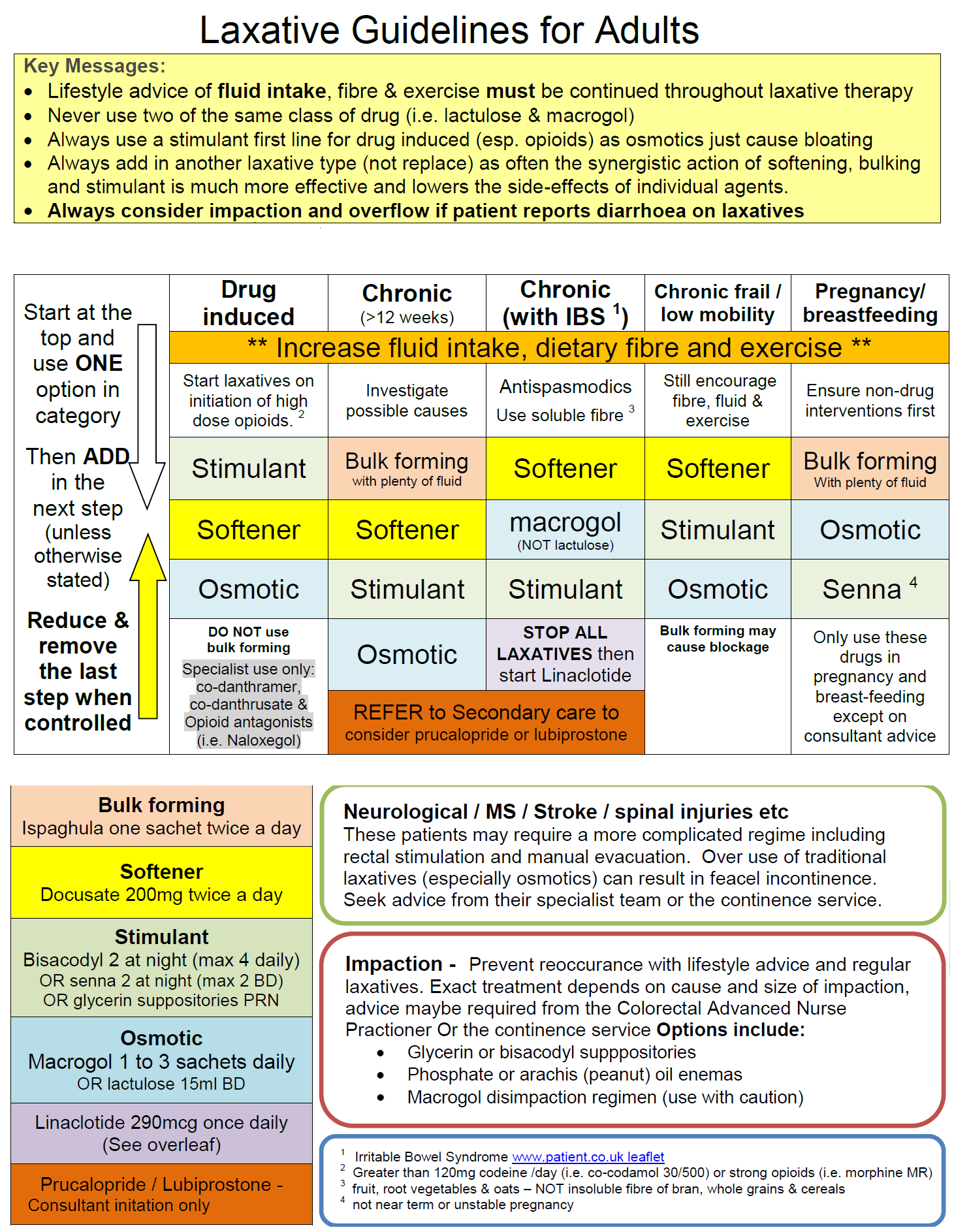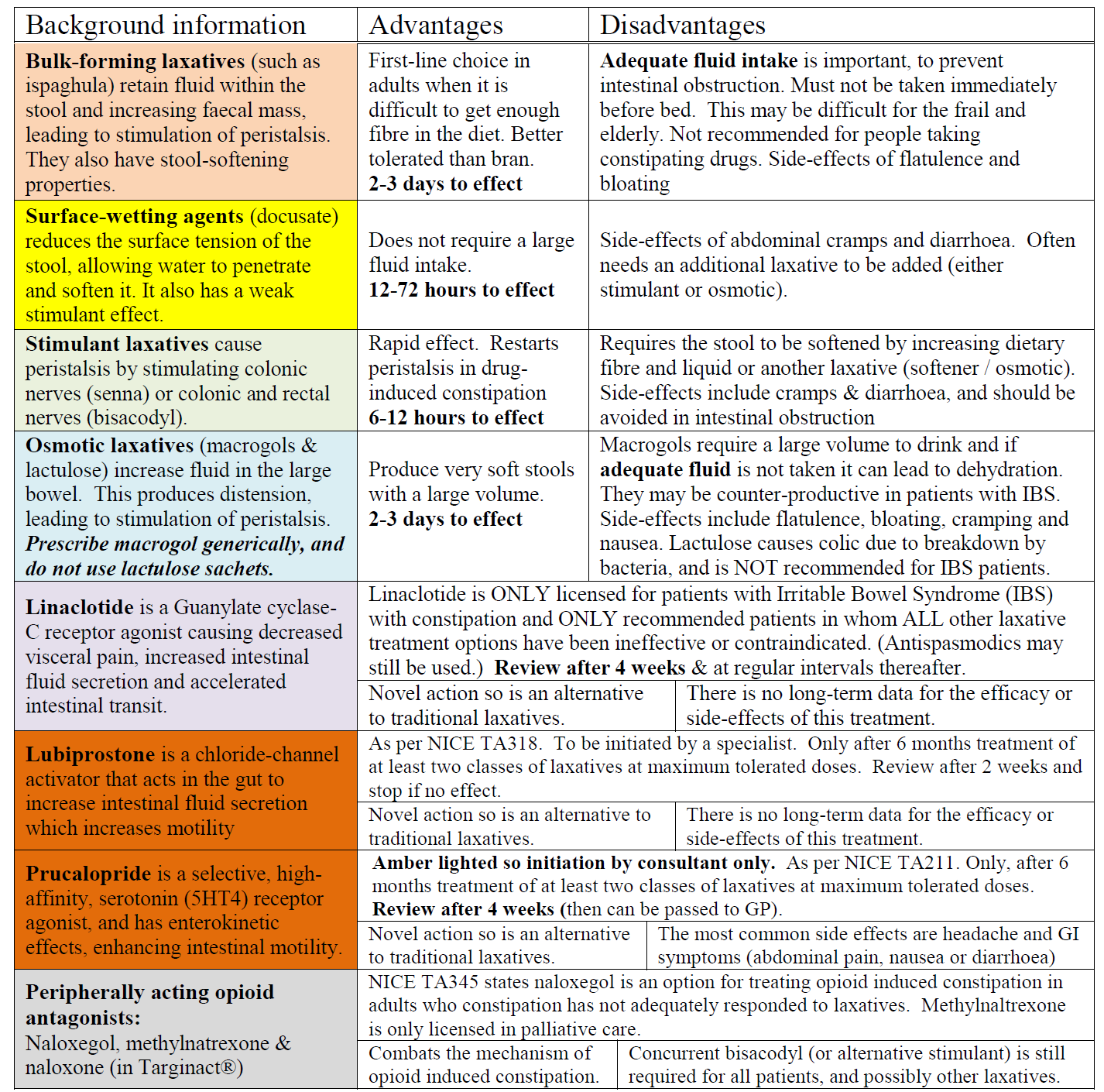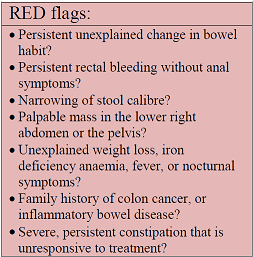treatment of chronic constipation
Last edited 11/2019
If chronic constipation then:
- dietary and lifestyle modification
Laxative use may be appropriate in certain situations (1)
- if there is no response to adequate dietary and lifestyle advice (e.g. after one month)
- if faecal impaction is present
- if the constipation or painful defecation is associated with illness, following surgery, or during pregnancy
- if the patient is elderly and has a poor diet
- if drug-induced constipation
- if the patient has a pre-existing medical problem in which bowel strain is undesirable (e.g. coronary heart disease)
- use of laxatives in preparation for an operation/investigation
- in general, use the lowest effective dose of a laxative that is effective - this should be reduced once symptoms resolve
Long-term use of laxatives may be necessary in certain situations:
- where constipation and faecal impaction could re-occur if treatment is stopped e.g. during the use of opioids in palliative care, in progressive neurological conditions (e.g. Parkinson's disease, multiple sclerosis), where there is immobility due to old age or illness, and in some children to prevent relapse
Laxatives to consider include:
- bulk forming laxatives
- of particular value if small hard stools
- these are contraindicated in bowel obstruction or faecal impaction
- effect may take several days
- may be appropriate for long-term use when there is normal gut motility and otherwise uncomplicated constipation
- stimulant laxatives
- effect with 6-12 hours of oral stimulant laxative
- danthron containing laxatives are no longer indicated for the general management of constipation in elderly patients
- osmotic laxatives e.g. lactulose
There is little clinical evidence on which to judge the relative effectiveness and tolerability of individual laxatives. Therefore, choice should be based on symptoms, patient preferences, side effects and cost of medicines.
A suggested guideline for use of laxatives in adults is summarised (2):


Consider Red Flag symptoms when managing constipation in adults:

Reference:
- MeReC Bulletin (2004), 14(6):21-4.
- Laxative Guidelines for Adults. Rotherham Clinical Commisioning Group (Accessed 9/11/19)